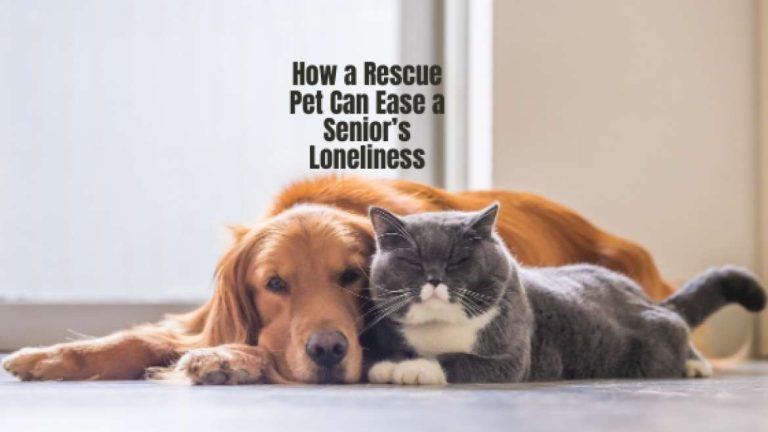One of the bright spots during the COVID-19 pandemic is that more and more older adults are opening their doors to a rescued pet. For seniors, it’s a win-win – they have a companion to get them through ongoing social isolation, and a dog or cat gets a loving home.
Researchers have found that 80 percent of pet owners say their furry friends make them feel less lonely, and older adults report a greater feeling of social connectedness and overall well-being with a pet in the house.
If your loved one is considering welcoming a new member to the family, it’s important to keep a few considerations in mind to ensure a healthy, happy relationship that benefits both the pet and the pet owner.
- Determine if your loved one can care for a pet. If your parent or grandparent struggles to care for themselves, they will likely also face physical limitations when it comes to walking, bathing or feeding a new pet. Plus, once you add up the costs of vet visits, food and grooming, caring for a pet can become financially overwhelming for seniors on a limited budget. Instead of adopting a dog or cat, it might make more sense to invest in a parakeet or fish. Or, if your loved one is pet-obsessed, bring your own dog over for a visit.
- Choose a pet that meets your loved one’s lifestyle. Puppies are cute companions, but they need constant attention, including being let out for bathroom breaks in the middle of the night and going on regular walks to burn off their excess energy. Older adults who lead more sedentary lifestyles will do better with senior pets who need lots of love, but not a lot of exercise. Plus, because active families prefer younger pets, the number of older pets looking for homes can overwhelm animal shelters. If your loved one is still able to take walks outside, a small, low-maintenance older pooch, like a Shih Tzu or pug mix, may be easier to handle than a large breed dog.
- Partner with a rescue group to find the right connection. There are several shelters in St. Louis that can help your loved one find their perfect match. However, one that specializes in caring for senior pets, such as the St. Louis Senior Dog Project or the Seniors 4 Seniors program through the Open Door Animal Sanctuary, can best identify the needs and personality traits of each older dog or cat to ensure the right fit. For instance, a senior who is craving companionship may grow frustrated with an aloof feline who values her privacy. In many cases, shelter representatives may perform a home visit to be sure the adoption is safe both for your loved one and their potential adoptee.
- Have a back-up plan in place. If your loved one has to go to the hospital temporarily, who will care for their pet in the meantime – will it be you, another family member or a boarding facility? In addition, because cats can live up to 17 years on average and dogs up to 13, there is a chance your loved one’s pet may outlive them. If you’re unwilling to open your own home in the event the unexpected happens, you, your loved one and the rescue group should have a plan in place in case the pet eventually needs a new home.
The advantages of pet ownership for seniors can’t be ignored, especially during this time of isolation. In addition to much-needed companionship, bringing a new pet home can help seniors stick to routines, find purpose in their day, and help them stay physically and mentally active—all of which improve their overall health and well-being. If the senior in your life is currently homebound and is receiving care from AccuCare Home Health Care of St. Louis, give us a call at 314-692-0020, and we can help you determine if a fluffy or furry family member would benefit them.






